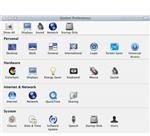


It is specially optimized for enterprises and large-scale applications.Unified Archives feature lets the users quickly back up data to move the whole system.This OS enables you to run legendary legacy programs on any modern hardware.The OS is quite stable and mature with two decades of active development period.But yet, Solaris was a significant OS in those days of computing when Linux was not that popular. It’s because the parent company Oracle is not yet interested in Solaris at this point. In 1992 the developers pushed the initial release, and after 2015, it didn’t get any further updates. However, after the acquisition of Oracle, it became a part of their portfolio. Sun Microsystems was the developer of this powerful Unix-based operating system.

Pros: There is no alternative for macOS if you want to develop iOS and other Apple products.Ĭons: This is a proprietary OS, and you will have to buy expensive hardware to run this operating system. You will get optimized performance since it runs on Apple systems only.macOS has support for powerful graphics and video editing suites.It supports bash shell by default, and the terminal is similar to Linux distros.macOS security system is superb with great developer support.This is the most visually attractive operating system with a colorful UI.Unlike Unix-like Linux distros, this one is totally commercial with a closed-source distribution model. However, you will get the classic Unix vibe here with some powerful features directly coming from the original Unix. There are some dissimilarities between other Unix derivatives and MacOS. This is the most advanced Unix-like operating system yet. Apple is the developer of macOS, and it is powering the Apple devices in their Mac lineup. MacOS is one of the most popular operating systems in this modern world. Maybe you will never be going to use them, but why not learn about this magical OS family? 1. So, I have decided to include only some exclusive and classic operating systems from the Unix family. Therefore, it’s difficult to cover them in a single article. Even a hundred Linux distros are technically Unix-based. So, in that sense, there are a lot of Unix-based operating systems other than macOS. No matter what OS we are using is somehow related to Unix and Unix derivatives. Unix is the mother of all modern operating systems. But some Unix-based OS is still functional even as an internal or private operating system. Unix was built with C language, and there are many advantages that many organizations took Unix as the base of their operating systems. Some of them are proprietary, like macOS, and some are open-source.


 0 kommentar(er)
0 kommentar(er)
